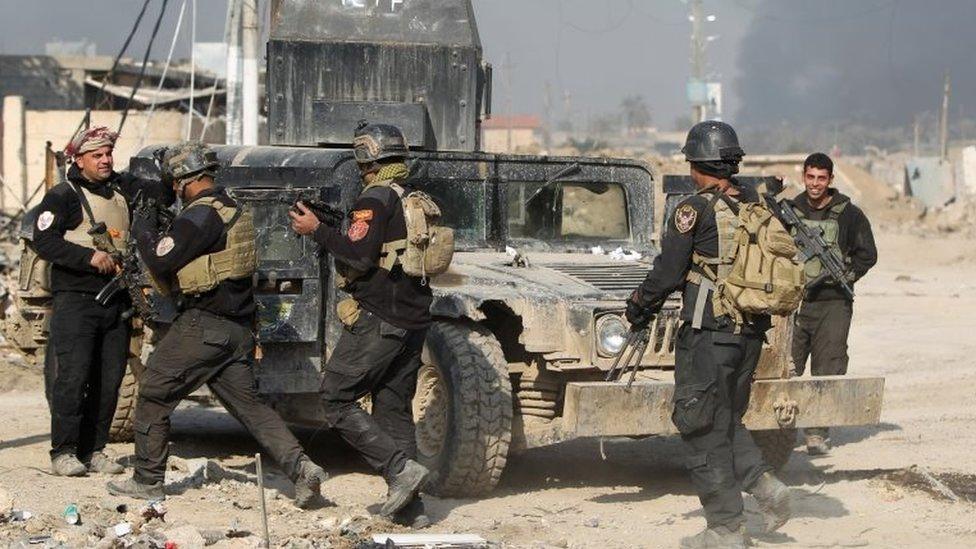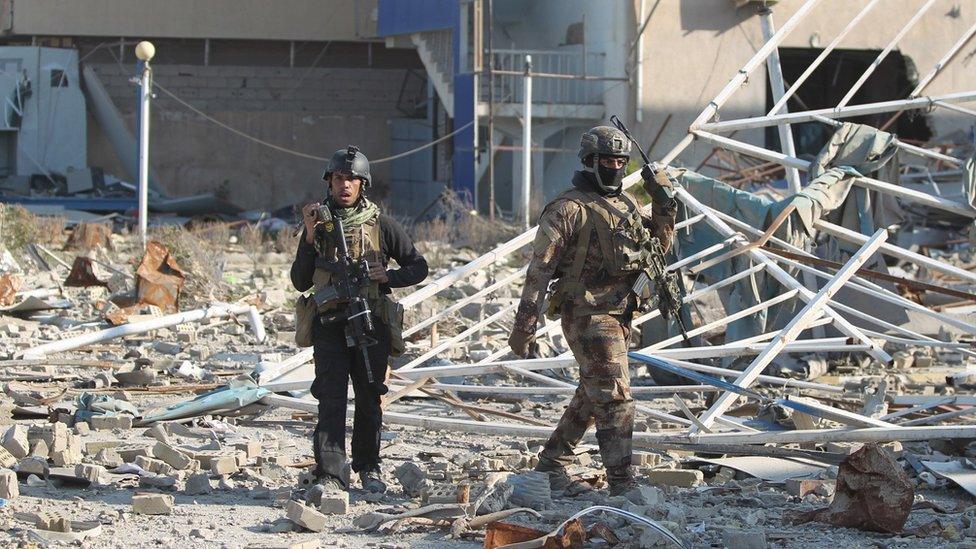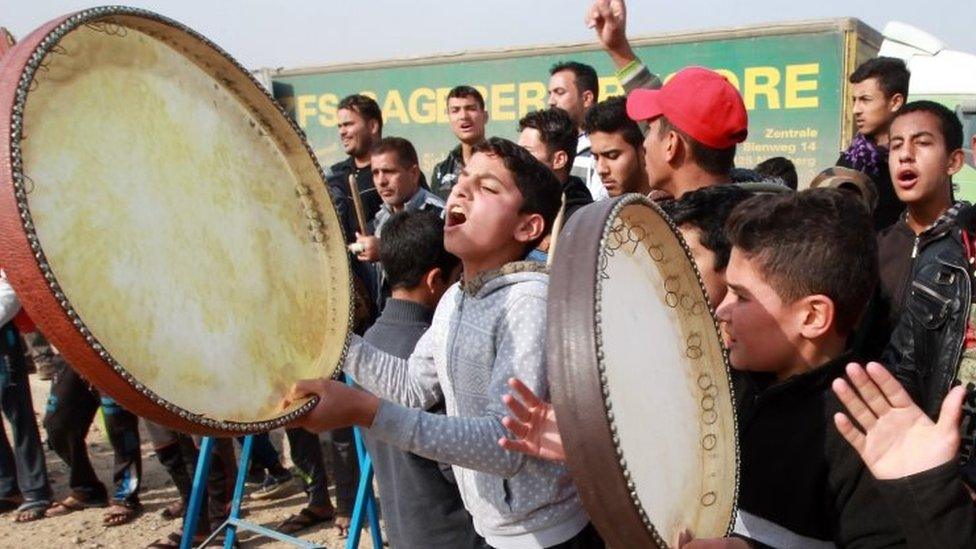Ramadi: Abadi visits after capture from IS
- Published

Members of Iraq's elite counter-terrorism force are among those who took part in the Ramadi operation
Iraqi Prime Minister Haider al-Abadi has visited Ramadi, a day after the city's liberation from the Islamic State (IS) group.
Mr Abadi, who flew in by helicopter, praised commanders and toured the badly damaged city. Earlier, he had vowed IS would be eliminated from Iraq in 2016.
Mr Abadi said recapturing Iraq's second city Mosul would be the "final blow".
Reports from Ramadi say the centre of the city appears calm, but sporadic clashes are reported in some areas.
Engineering teams are clearing bombs from streets and buildings.
The retaking of the city was welcomed by US Secretary of State John Kerry, who said IS had suffered a major blow.
Pentagon spokesman Steve Warren said some 400 civilians were being looked after by Iraqi security forces in the city centre.
He said it was too early to say where other civilians had gone but added that much of the city still needed to be cleared. No estimate of civilian casualties has been provided.
Thomas Fessy reports from inside Ramadi in Iraq.
The capture in May of Ramadi, the capital of the province of Anbar which lies about 90km (55 miles) west of Baghdad, was an embarrassing defeat for the Iraqi army.
Iraqi government forces have been fighting to retake the city for weeks.

Analysis: By Michael Knights, Washington Institute for Near East Policy
With the Ramadi operation beginning to wind down, IS knows that the main event - the battle for Mosul - will now begin.
IS could try another diversionary attack, but the Iraqi and Syrian forces are now better prepared and supported with air power from the US-led coalition.
The slow preparatory phases of the battle for Mosul is likely to unfold in the first half of 2016.
First, the next IS defensive bulwarks will be ground down - the oil-refining hub Qayyarah and other Tigris River valley towns south of Mosul.
Then the city will be slowly encircled in the summer, and air strikes will intensify on IS leadership and logistical targets. Then the assault will begin once the summer heat dies down in the autumn of 2016.

Army spokesman Brig Gen Yahya Rasul said Ramadi had been "liberated" in an "epic" victory.
Iraqi officials gave no immediate death toll from the battle, but Colonel Warren said the coalition estimated casualties on the Iraqi government side were in the low double digits.
Mr Kerry congratulated Iraqi forces for "displaying tremendous perseverance and courage".
"While Ramadi is not yet fully secure and additional parts of the city still must be retaken, Iraq's national flag now flies above the provincial government centre and enemy forces have suffered a major defeat," he said.
No US ground forces were used in the battle for Ramadi, the Pentagon says.

'Not the end of the crisis': Press reaction

The battle for the city led to extensive destruction in some districts
Middle East press reaction to the retaking of Ramadi ranges from hope that this development marks a turning point in the struggle against IS to reminders that the group has yet to be dislodged from other parts of the country.
Iraqi pro-Shia newspaper al-Adalah says: "The huge victories that were achieved by security forces indicate that the end of terrorism is imminent."
Jordan's pro-government daily al-Rai writes: "The battle of Ramadi is not over. We still have to liberate Mosul."
Saudi-owned London-based al-Hayat says: "Iraqi troops have entered Ramadi and Islamic State gunmen have retreated. But its liberation will not be the end of the crisis. In order to return to normal life, there are political struggles to be resolved, as well as expected tribal vendettas and the challenges of rebuilding."

Brig Gen Majid al-Fatlawi, of the army's 8th division, told AFP news agency that IS fighters had "planted more than 300 explosive devices on the roads and in the buildings of the government complex".
In the fight for Ramadi, the government chose not to deploy the powerful Shia-dominated paramilitary force that helped it regain the mainly Sunni northern city of Tikrit, to avoid increasing sectarian tensions.

Iraqis displaced by IS's seizure of Ramadi celebrated its recapture in a camp in Baghdad